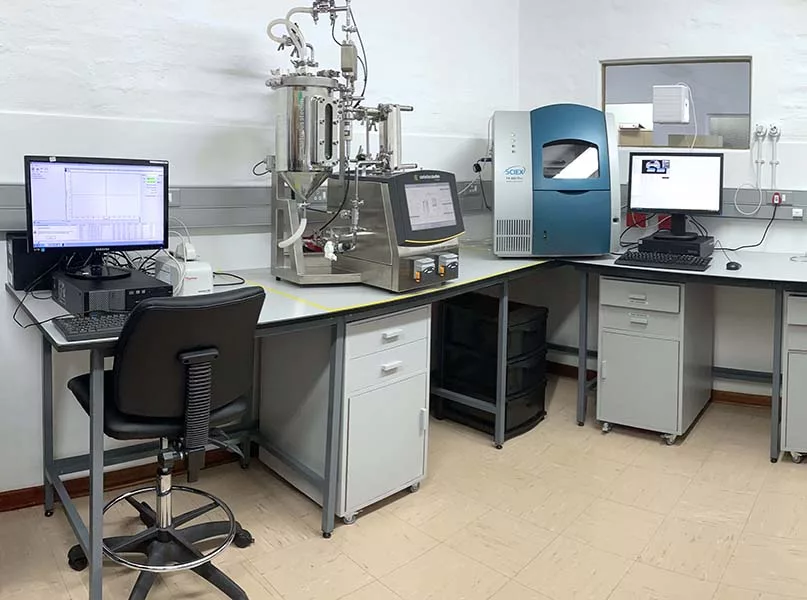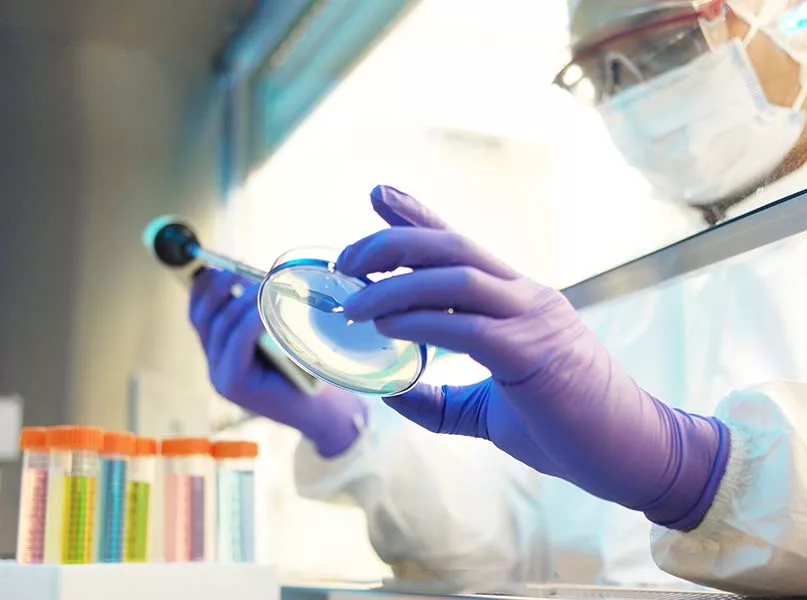National Bioproducts Institute aims to establish itself as the leading African manufacturer and supplier of quality therapeutic proteins and diagnostic products. Shanay Singh, Head of Business Development, tells us more.
THE POWER OF PLASMA
Nestled snugly in an unassuming corner of Pinetown’s Paradise Valley, National Bioproducts Institute (NBI) provides a vital service for South Africa (SA).
The world-class facility produces much-needed plasma-derived products for South African patients, something that the state-of-the-art facility has been doing for more than three decades.
To date, NBI has worked tirelessly to develop a rich history of serving the needs of patients in its highly specialised area of plasma-derived medicinal products (PDMPs) and diagnostics. The company is a private, non-profit pharmaceutical manufacturer of human PDMPs, with NBI’s manufacturing site and head office currently located in Pinetown, KwaZulu-Natal, SA.
In 1968, in response to local demand for PDMPs, the Natal Blood Transfusion Service (NBTS) established a small fractionation facility, known as the Natal Fractionation Centre. The facility was later relocated to the site in Pinetown in 1979, where it still stands today.
Due to a raft of changes to medicinal legislation in SA, the company was required to re-register as a manufacturing pharmacy. Therefore, in 1994, NBI was subsequently registered as a separate pharmaceutical company. A decade later, the company name was changed to its current alias in order to reflect the national scope of its operations across SA.
“Our small but growing biotechnology department specialises in monoclonal antibody development together with the production of near-patient test kits, and in doing so has gained an impressive reputation,” begins Shanay Singh, Head of Business Development at NBI.
“The department supplies customers around the world but continues to focus on disease states that are pertinent to NBI’s mission. Our range of pharmaceutical products includes clotting factors, immunoglobulins, albumin solutions, and solvent detergent treated dried plasma,” he adds.
Having previously headed up portfolio management as part of the new business development team at Aspen Pharma Group, Singh joined NBI in July 2020 and is responsible for the sales and marketing as well as export functions of the business, in addition to overseeing the expansion of the company’s portfolio and pipeline.
Singh is also a registered pharmacist with Master’s degrees in clinical pharmacy and business administration, meaning he brings a valuable mix of clinical and commercial expertise to the role.

CARING FOR THE NATION
NBI’s comprehensive range of products is registered with the South African Health Products Regulatory Authority (SAHPRA), while several of its products are also listed in the SA Essential Medicines List as well as the World Health Organisation’s Essential Drug List.
Now displaying an impressive portfolio of work, the biotechnology department within the company develops and manufactures diagnostic kits and monoclonal antibodies for the South African and international diagnostics market.
“Back in 1994, NBI employed 63 people. Flash forward to today, and over 270 dedicated individuals come together each day to form the NBI team, driven and united with the purpose of providing plasma-derived medicinal products to the patients of SA and, where possible, beyond the nation’s borders to the inhabitants of sub-Saharan Africa,” details Singh.
“In the future, we intend to extend our service commitment into areas which are largely underserved in terms of PDMPs. We aim to closely collaborate, both nationally and internationally, with like-minded organisations whose vision, mission, and values closely match our own,” he sets out.
For now, NBI’s core business is to manufacture pharmaceutical products from human plasma using a process of cold ethanol fractionation. The majority of NBI’s plasma requirements are met from local sources, including the South African National Blood Service (SANBS) and the Western Province Blood Transfusion Service (WPBTS).
Products are then distributed throughout SA, and to the Southern African Development Community (SADC) and other developing countries.
NBI and SANBS continue to work in tandem and collaborate towards achieving the Department of Health’s goal of ensuring the self-sufficiency of blood, blood products, and plasma-derived medicinal products for all patients in SA.
“To this end, we endeavour to provide products and services from regional resources using plasma from healthy, voluntary donors,” Singh elaborates.
“We aim to motivate and excite staff constantly throughout the year to help keep everyone appraised and involved in everything that’s going on in the business”
Shanay Singh, Head of Business Development, National Bioproducts Institute

QUALITY AND EMPOWERMENT
NBI has a firm commitment to quality. Therefore, the company’s Quality Management System (QMS) is aimed at assuring that the desired product quality is routinely met, suitable process performance is achieved, set controls remain appropriate, and continual improvement opportunities are identified and evaluated in great detail.
The QMS applies to all areas of NBI and has been implemented to ensure compliance with current Good Manufacturing Practice (cGMP) requirements as well as utilising many of the elements of ISO systems.
Other areas that are key to NBI’s service assurance include the company’s focus on integrating quality principles into strategic planning to ensure that its commitments to patients, regulators, and other stakeholders are fulfilled.
Elsewhere, NBI ensures that all its systems meet or exceed cGMP requirements and good laboratory techniques, strives to ensure that it has suitably qualified and experienced staff to meet its commitments, and responds positively and appropriately to the changing needs of its stakeholders and their concerns.
This also entails a commitment to engaging in continual improvement to ensure safe and effective products, reliable and accurate operations, and reduced production losses through routine surveillance of NBI’s systems.
Similarly, each staff member, as well as NBI as a whole, is responsible for striving for excellence in the manufacture, sale, and distribution of relevant biological products.
To help empower its staff to achieve this, NBI recognises the need to create a shared feeling of excitement and empowerment amongst its people, who the company acknowledges as the most crucial cog in the machine of its ongoing success and prosperity.
“We always try to include everyone who wants to join our strategic teams, and we welcome their ambition with open arms. In doing this, our employees can contribute their input into the broader company strategy and simultaneously gain a sense of accomplishment and purpose beyond the great work that they already do in their operational roles,” Singh describes.
“We aim to motivate and excite staff constantly throughout the year to help keep everyone appraised and involved in everything that’s going on in the business,” he adds.
The proud teams that NBI has meticulously grown will no doubt continue to distinguish themselves and the company as one of the industry leaders in providing such a vital service within the South African healthcare sector for many years to come.
























